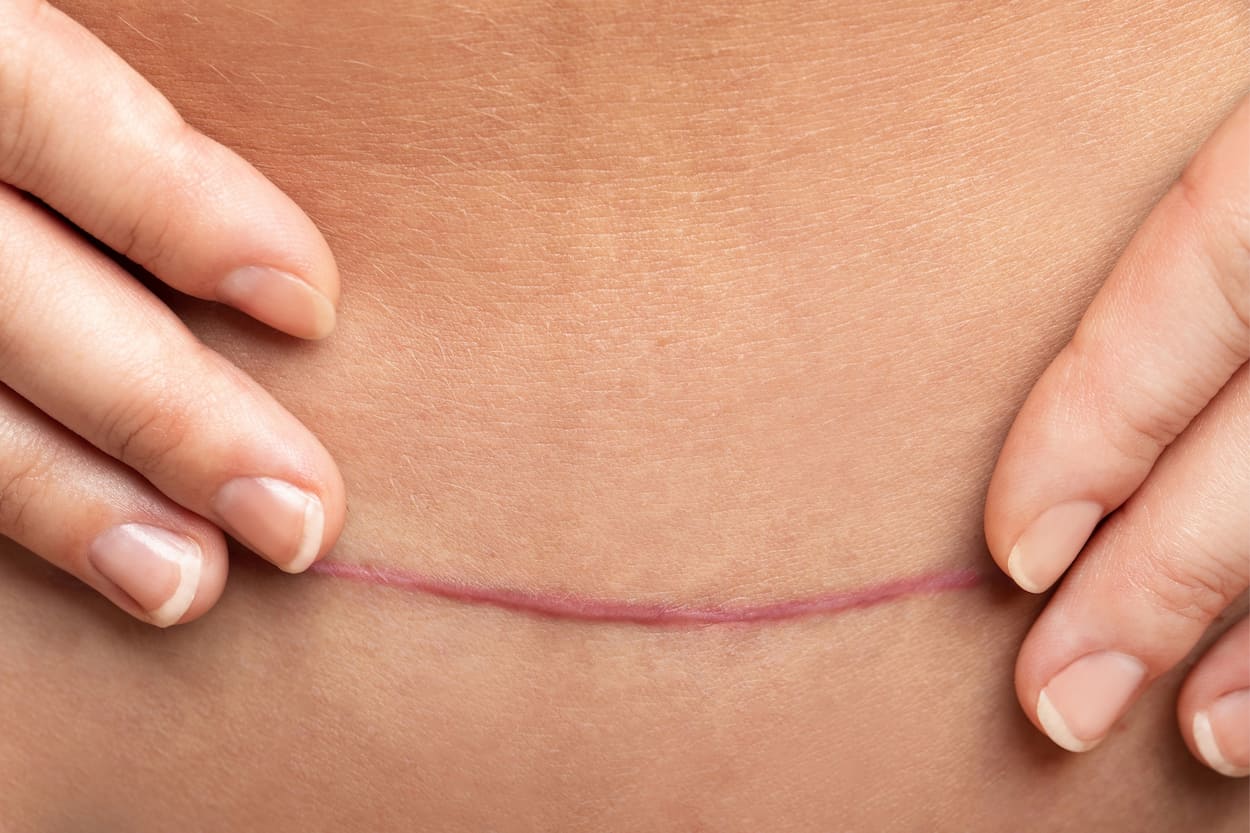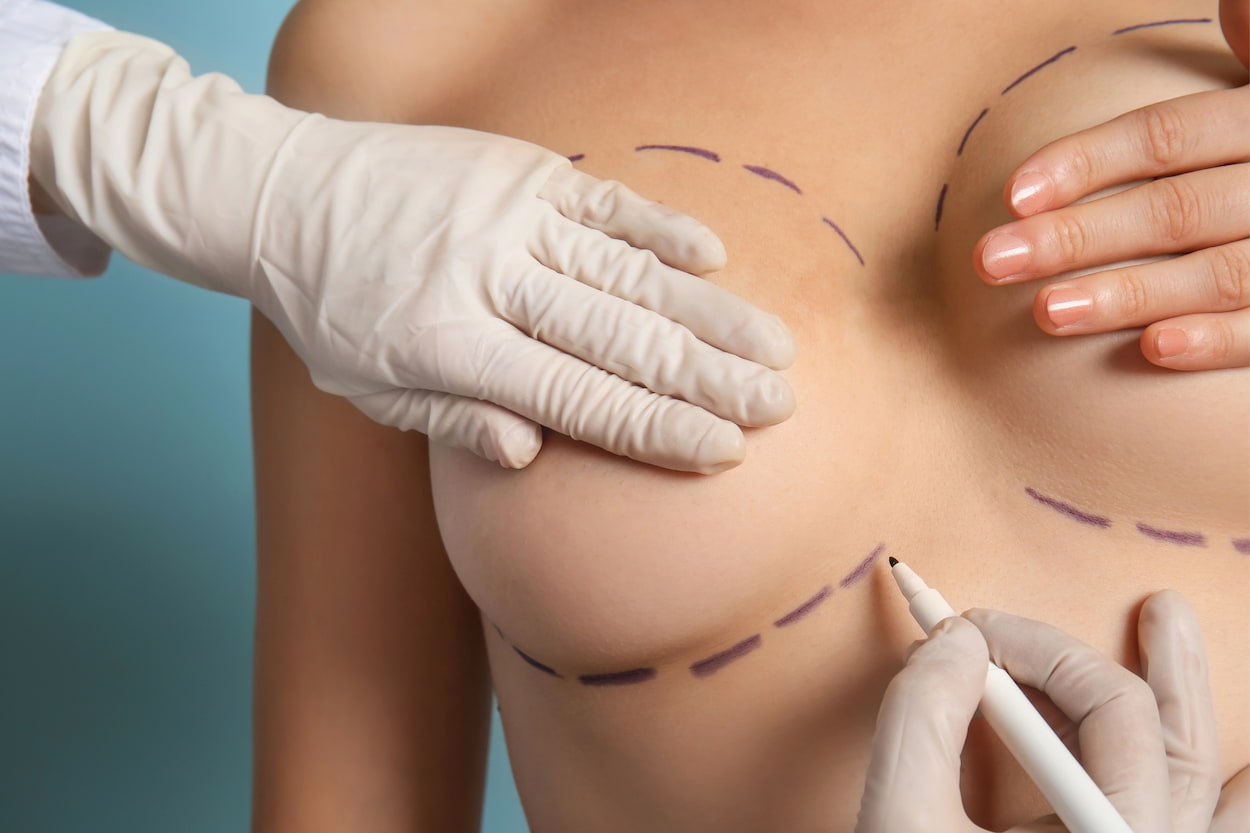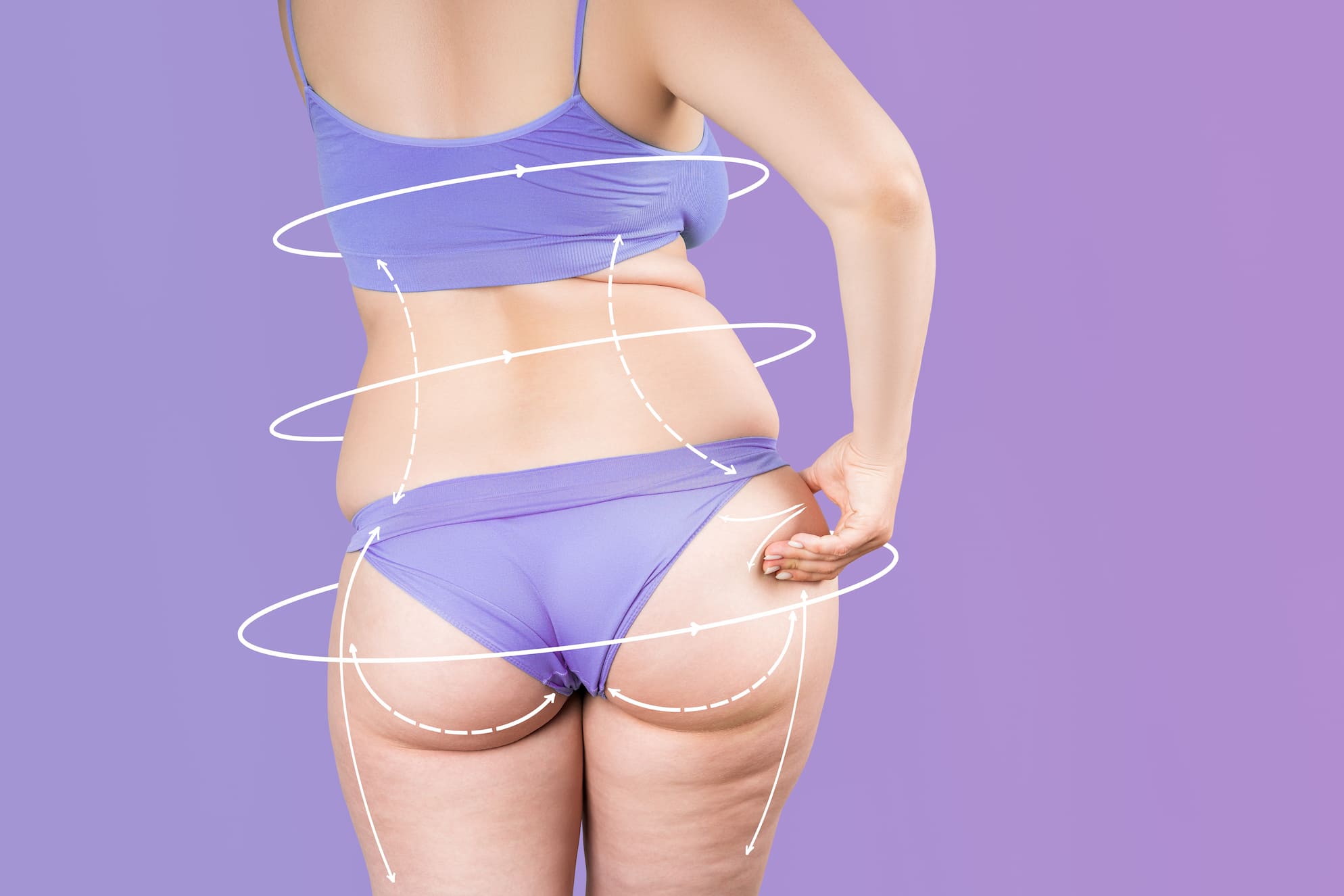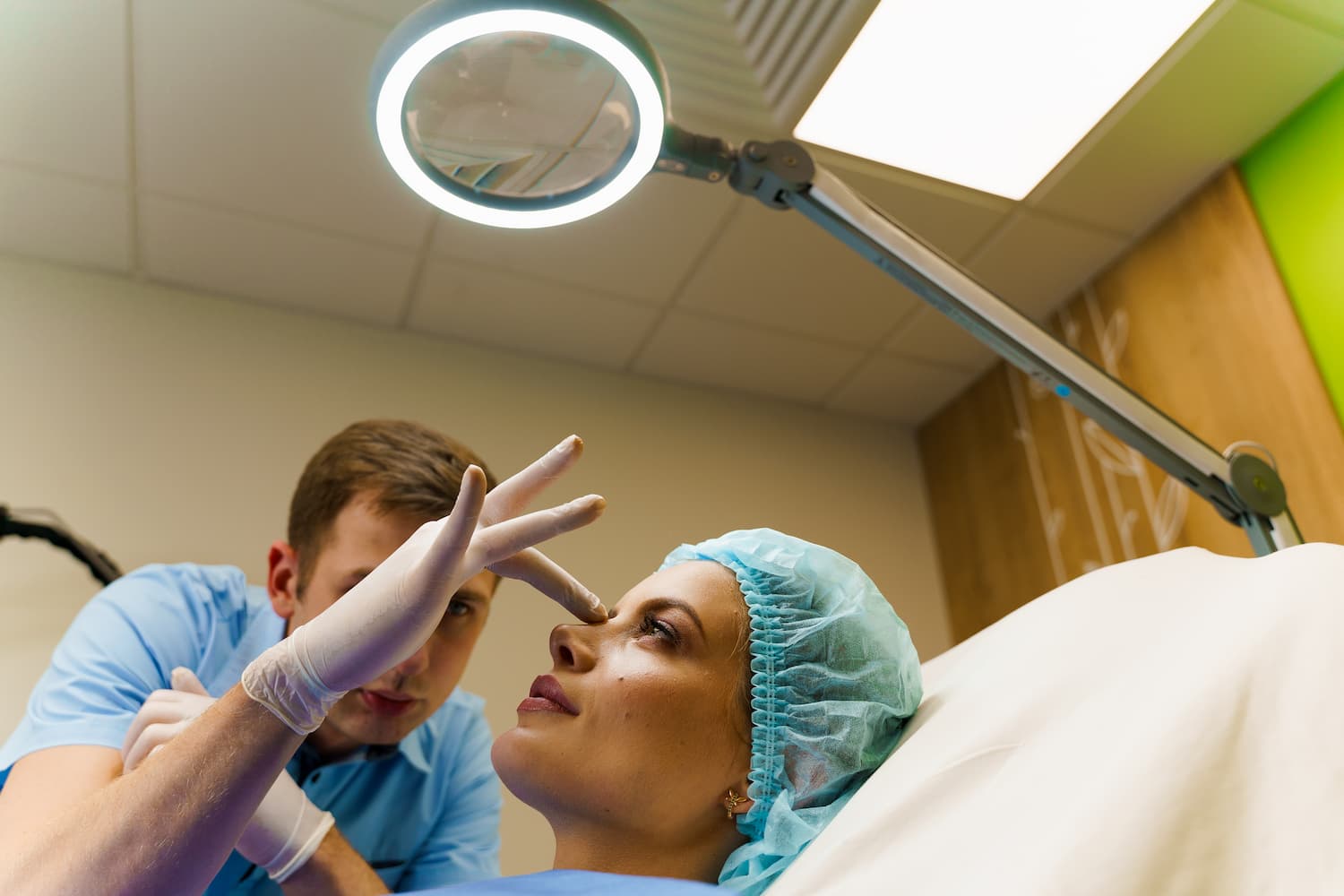
How to Reduce Scarring After Cosmetic Surgery?
Cosmetic surgery can help enhance your appearance and boost your confidence. However, one of the potential downsides of any surgery is scarring. Scarring is a natural part of the healing process, but it can be unsightly and cause discomfort.
Fortunately, there are steps you can take to reduce scarring after cosmetic surgery. In this article, we'll explore the causes of scarring, factors that affect how your scar heals, and what you can do to minimize scarring.
What Causes Scarring?
Scarring is a natural part of the body's healing process. When the skin is injured, the body produces collagen to help repair the damaged tissue. Collagen is a fibrous protein that forms a network of fibers to strengthen and support the damaged area. This collagen forms scar tissue, which is different from the surrounding skin and can appear thicker, darker, and more noticeable.
The severity of scarring can depend on several factors, including the depth and size of the wound, the location of the injury, and the individual's age, genetics, and overall health. Some people may be more prone to scarring due to their skin type or previous history of scarring. Additionally, some medical conditions or medications may increase the risk of scarring.
In the case of cosmetic surgery, scarring is an expected outcome of the procedure. Incisions are made in the skin, and the body's healing process produces scar tissue to repair the area. However, plastic surgeons take steps to minimize scarring by using techniques that result in less visible scars, such as making incisions in discreet locations or using sutures that dissolve on their own.

What Will Affect How My Scar Heals?
Several factors can affect how your scar heals after cosmetic surgery. Genetics, wound size and location, age, overall health, and post-operative care are some of the most significant factors that can influence how your scar heals.
Genetics plays a significant role in how your body produces collagen and heals wounds. If you have a family history of keloids or hypertrophic scars, you may be more prone to developing these types of scars after cosmetic surgery. Keloids are raised, thick scars that extend beyond the original wound site, while hypertrophic scars are raised and often red or pink in color. Knowing your family history of scarring can help your plastic surgeon develop a personalized treatment plan to minimize scarring after surgery.
The size and location of the wound can also affect how your scar heals. Larger wounds may produce more scar tissue and result in more noticeable scars. Incisions in areas of the body with more tension, such as the chest or shoulders, may also produce more prominent scars. In contrast, incisions in areas of the body with less tension, such as the lower abdomen, may result in less noticeable scars.
Your age and overall health can also affect how your scar heals. As you age, your skin becomes thinner and less elastic, which can make scars more noticeable. Additionally, certain medical conditions, such as diabetes, can slow down the healing process and increase the risk of infection. Maintaining a healthy lifestyle, including a balanced diet and regular exercise, can help optimize your body's natural healing processes and promote optimal scar healing.
Finally, post-operative care is crucial for minimizing scarring after cosmetic surgery. Proper wound care, including keeping the incision site clean and dry, avoiding sun exposure, and following your surgeon's post-operative instructions, can help reduce scarring. Massaging your scars with a scar cream or oil may also help soften and flatten them over time. If you notice any signs of infection or abnormal scarring, such as redness, swelling, or excessive itching, contact your plastic surgeon immediately for evaluation and treatment.
What You Can Do to Minimize Scarring After Plastic Surgery
Although it's impossible to prevent scarring completely, there are steps you can take to minimize scarring after cosmetic surgery. Here are some tips:
Follow your surgeon's post-operative instructions: Your surgeon will provide detailed instructions on how to care for your incisions and minimize scarring. Follow these instructions carefully, and don't hesitate to contact your surgeon if you have any questions or concerns.
Keep your incisions clean and dry: It's essential to keep your incisions clean and dry to prevent infection and promote healing. Avoid soaking in water or exposing your incisions to excessive moisture.
Avoid sun exposure: Sun exposure can cause hyperpigmentation and make scars more noticeable. Protect your incisions from the sun's harmful rays by wearing clothing that covers the area or using sunscreen.
Massage your scars: Massaging your scars can help break up scar tissue and promote blood flow to the area, which can help reduce scarring. Talk to your surgeon about the best techniques and when it's safe to start massaging your scars.
Consider scar treatments: Several treatments can help minimize scarring after cosmetic surgery. These include silicone sheets or gels, corticosteroid injections, laser therapy, and micro-needling. Talk to your surgeon about which treatment may be right for you.
What If My Scar Isn’t Healing Properly?
If you notice any signs of poor healing, such as excessive redness, swelling, or discharge, contact your surgeon immediately. These symptoms could indicate an infection or other complications that require prompt medical attention. Your surgeon may recommend additional treatments to promote healing, such as antibiotics or wound care.
Can Nutrition Influence Scar Tissue Healing After Cosmetic Surgery?
Proper nutrition is essential for optimal healing after cosmetic surgery. Eating a healthy, balanced diet rich in vitamins and nutrients can help your body heal faster and reduce the risk of complications. Some nutrients that may be particularly beneficial for scar healing include:
Vitamin C: Vitamin C is essential for collagen production, which is critical for wound healing. Foods rich in vitamin C include citrus fruits, strawberries, kiwi, bell peppers, and broccoli.
Zinc: Zinc is necessary for cell growth and division, which is essential for healing. Good sources of zinc include seafood, meat, nuts, and seeds.
Omega-3 fatty acids: Omega-3 fatty acids have anti-inflammatory properties and can help reduce swelling and inflammation. Good sources of omega-3 fatty acids include fatty fish, flaxseeds, chia seeds, and walnuts.
Vitamin E: Vitamin E is an antioxidant that can help reduce scarring. Good sources of vitamin E include nuts, seeds, spinach, and avocado.
Protein: Protein is essential for tissue repair and can help speed up the healing process. Good sources of protein include lean meats, poultry, fish, beans, and lentils.
It's also essential to stay hydrated by drinking plenty of water and avoiding alcohol and caffeine, which can dehydrate the body.
Permanent Scar Removal
While it's not possible to completely remove scars, several treatments can help minimize their appearance. These include:
Surgery: Surgical scar revision involves removing the scar tissue and rejoining the skin with stitches. This can help improve the appearance of the scar, but it may result in a new scar.
Laser therapy: Laser therapy can help reduce the appearance of scars by stimulating collagen production and breaking up scar tissue.
Dermabrasion: Dermabrasion involves removing the top layer of skin to help smooth out the scar. This treatment is most effective for shallow scars.
Micro-needling: Micro-needling involves creating tiny punctures in the skin to stimulate collagen production and promote healing.
Injections: Injections of corticosteroids or other medications can help reduce inflammation and improve the appearance of scars.
It's essential to consult with a board-certified plastic surgeon or dermatologist to determine the best course of treatment for your specific needs.
Avoid Scarring After Cosmetic Surgery with Healthy Turkiye
Scarring is a natural part of the healing process after cosmetic surgery, but there are steps you can take to minimize its appearance. By following your surgeon's post-operative instructions, keeping your incisions clean and dry, protecting your incisions from the sun, massaging your scars, and considering scar treatments, you can help reduce scarring after cosmetic surgery. Additionally, proper nutrition and hydration can help promote optimal healing. If you're concerned about scarring after cosmetic surgery, you can consult with Healthy Turkiye’s board-certified plastic surgeons or dermatologists to discuss your options for scar revision.




